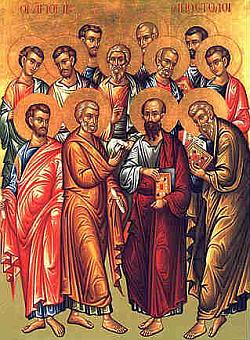I read during lunch every day. This summer’s reading includes two very different books that, sadly, share one read-between-the-lines moral.
How Children Succeed: Grit, Curiosity, and the Hidden Power of Character by Paul Tough came to my attention from a Facebook friend posting that it was one of the books on Bill Gates’s reading list. As a father and as someone who majored in a field that deals with how people learn and succeed, I felt a duty to read this.
Lost Girls: An Unsolved American Mystery by Robert Kolker is not the sort of book I typically read, but it has garnered considerable attention. The book examines the Long Island serial killer murders of women who sold sex via Craigslist.
The Tough book is something of a chain yank, since it focuses almost exclusively on how children in poverty can succeed. Featuring mini-profiles of poor children and their efforts to rise above a multi-generational trap of failure, it postulates a set of a traits these kids can pursue to improve their chances in life.
Meanwhile, the Kolker book’s profiles of the victims shows one way for girls in poorer families NOT to succeed: by turning to self-managed prostitution. Almost without exception, the lives of the young women in this book mirrored those of the Tough book, save that the victims here are all white.
What neither book really wants to come out and say is what is most disturbing about their similarities. How Children Succeed dances around this reality like a soldier trapped in a minefield, and Lost Girls (so far) reports just the facts, also avoiding the issue.
In both these books what is most obvious is the lack of a concerned, involved, stable father at home.
 An endless stream of ne’er-do-well men drift in and out of the lives of the kids in How Children Succeed and Lost Girls. It’s so glaring and so routine that the authors’ failure to elaborate on it speaks volumes, especially in the Tough book, which I found particularly gutless in its unwillingness to state the obvious: that children succeed when they have a stable mom and dad at home. And in the Kolker book, knowing that most of these women started life with an absent father makes their ultimate life choices and demise all the more heartrending.
An endless stream of ne’er-do-well men drift in and out of the lives of the kids in How Children Succeed and Lost Girls. It’s so glaring and so routine that the authors’ failure to elaborate on it speaks volumes, especially in the Tough book, which I found particularly gutless in its unwillingness to state the obvious: that children succeed when they have a stable mom and dad at home. And in the Kolker book, knowing that most of these women started life with an absent father makes their ultimate life choices and demise all the more heartrending.
But this blog is not about poor children and murdered prostitutes.
I’ve written previously on Cerulean Sanctum that men in the Church have a greater responsibility than they assume. At a time when so many children are being raised by a mother alone, Christian men cannot cocoon within their own nuclear families. Men of all ages in the Church must understand that their responsibility to the next generation does not end with their own children.
If we are to make a positive impact on that next generation, Christian men need to make a concerted effort to be involved in the lives of other people’s children, especially those children who lack a father at home.
No doubt, this is a heavy task. We Christian men are overburdened as it is.
Still, if these two books depict the canary in the coal mine of our society, it’s that America cannot be great if its families are not great. And despite what the Left in America thinks, great families start with a solid, caring mom and dad at home.
If that is not possible, though, someone needs to step up to make it better than it is.
Church leaders, you know the families in your church that have a dad who has gone missing. You need to be more intentional about calling the men in your church, as a group, to do something about that lack.
Kids of all ages need strong, positive male role models. Both How Children Succeed and Lost Girls make this obvious, even if they are unwilling to say so.


